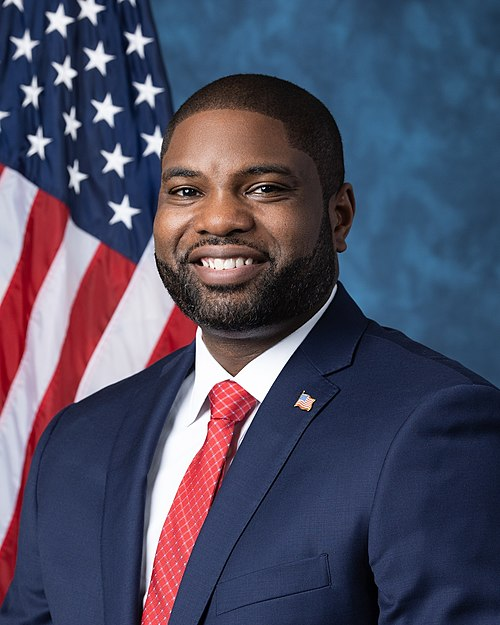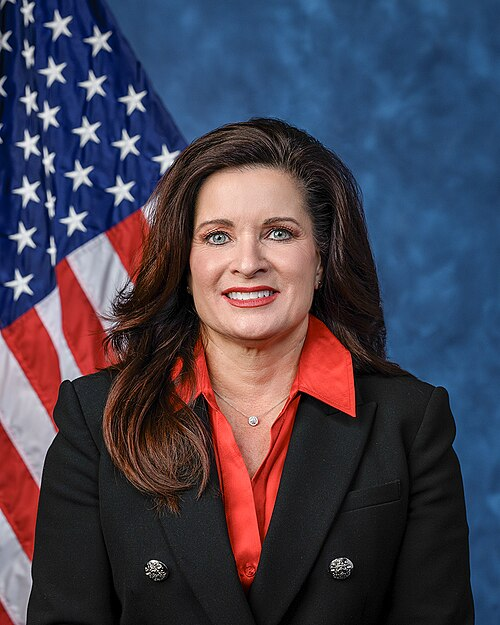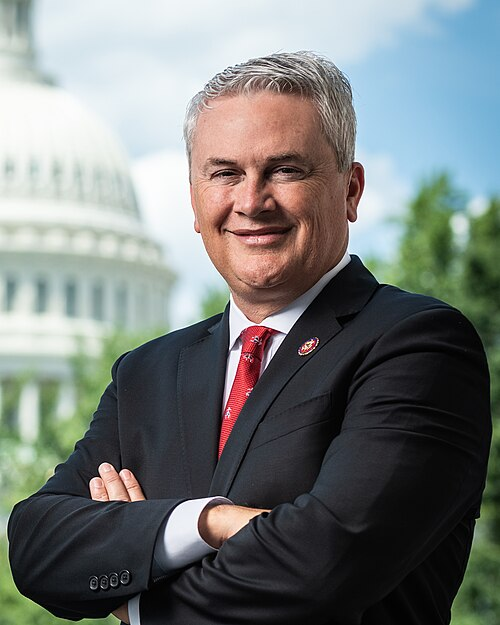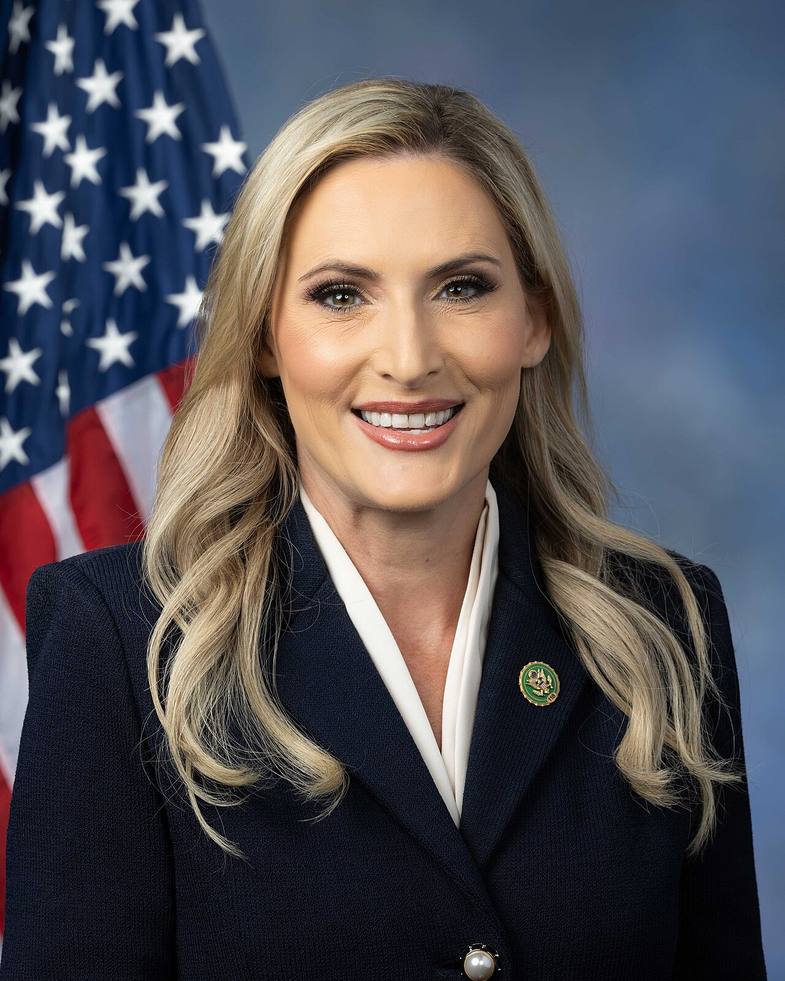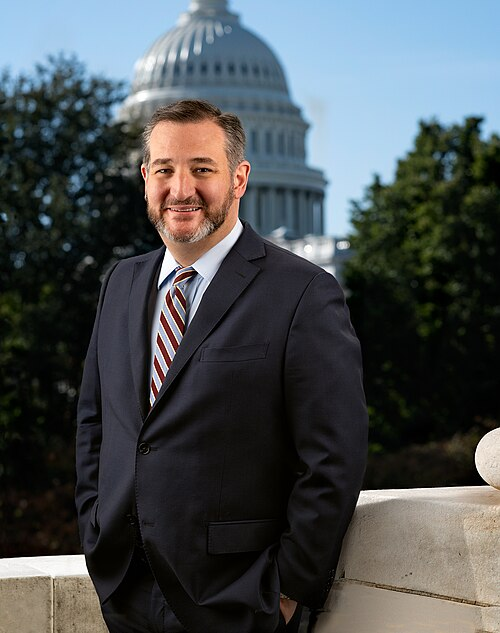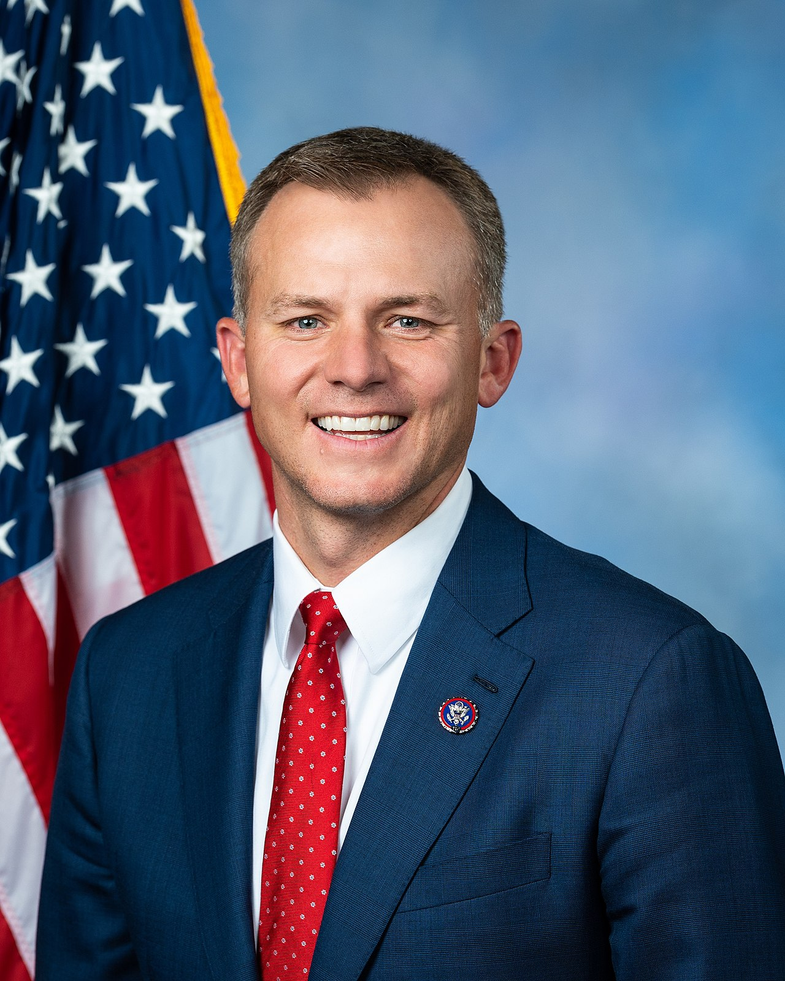|
Val T. Hoyle
D / House
|
BAC
BANK OF AMERICA CORPORATION COMMON STOCK
|
Sale
$1,001 - $15,000
|
Oct 10, 2025
|
Sep 23, 2025
|
-2.80%
|
|
Val T. Hoyle
D / House
|
BLK
BLACKROCK, INC. COMMON STOCK
|
Sale
$1,001 - $15,000
|
Oct 10, 2025
|
Sep 23, 2025
|
+3.63%
|
|
Val T. Hoyle
D / House
|
JPM
JP MORGAN CHASE & CO. COMMON STOCK
|
Sale
$1,001 - $15,000
|
Oct 10, 2025
|
Sep 23, 2025
|
-2.71%
|
|
Richard McCormick
R / House
|
BLK
BLACKROCK, INC. COMMON STOCK
|
Sale
$1,001 - $15,000
|
Oct 09, 2025
|
Sep 18, 2025
|
+2.72%
|
|
Ro Khanna
D / House
|
BAC
BANK OF AMERICA CORPORATION HYBRID PERPETUAL
|
Purchase
$1,001 - $15,000
|
Oct 03, 2025
|
Sep 17, 2025
|
-3.13%
|
|
Marjorie Taylor Greene
R / House
|
GS
GOLDMAN SACHS GROUP, INC.
|
Purchase
$1,001 - $15,000
|
Sep 27, 2025
|
Sep 11, 2025
|
-1.39%
|
|
Ro Khanna
D / House
|
BAC
BANK OF AMERICA CORP CMN
|
Sale
$1,001 - $15,000
|
Oct 03, 2025
|
Sep 10, 2025
|
-1.75%
|
|
Ro Khanna
D / House
|
BAC
BANK OF AMERICA CORP CMN
|
Sale
$1,001 - $15,000
|
Oct 03, 2025
|
Sep 05, 2025
|
-1.83%
|
|
Ro Khanna
D / House
|
BAC
BANK OF AMERICA CORP CMN
|
Sale
None
|
Sep 09, 2025
|
Sep 04, 2025
|
-
|
|
Ro Khanna
D / House
|
BAC
BANK OF AMERICA CORP CMN
|
Sale
$1,001 - $15,000
|
Oct 03, 2025
|
Sep 02, 2025
|
-4.20%
|
|
Ro Khanna
D / House
|
BAC
BANK OF AMERICA CORP CMN
|
Sale
$1,001 - $15,000
|
Oct 03, 2025
|
Sep 02, 2025
|
-4.20%
|
|
Ro Khanna
D / House
|
JPM
JPMORGAN CHASE & CO. LINKED TO S&P 500 INDEX
|
Purchase
$15,001 - $50,000
|
Sep 09, 2025
|
Aug 21, 2025
|
-0.30%
|
|
Ro Khanna
D / House
|
JPM
JPMORGAN CHASE & CO. LINKED TO S&P 500 INDEX
|
Purchase
$15,001 - $50,000
|
Sep 09, 2025
|
Aug 21, 2025
|
-0.30%
|
|
Dan Newhouse
R / House
|
BLK
BLACKROCK, INC. COMMON STOCK
|
Sale
$1,001 - $15,000
|
Sep 17, 2025
|
Aug 18, 2025
|
-0.15%
|
|
Julie Johnson
D / House
|
BAC
BANK OF AMERICA CORPORATION COMMON STOCK
|
Sale
$1,001 - $15,000
|
Sep 11, 2025
|
Aug 14, 2025
|
+2.13%
|
|
Julie Johnson
D / House
|
GS
GOLDMAN SACHS GROUP, INC.
|
Sale
$1,001 - $15,000
|
Sep 11, 2025
|
Aug 14, 2025
|
+1.60%
|
|
Ro Khanna
D / House
|
BAC
BANK OF AMERICA CORP CMN
|
Sale
$1,001 - $15,000
|
Sep 09, 2025
|
Aug 13, 2025
|
+3.17%
|
|
Ro Khanna
D / House
|
BAC
BANK OF AMERICA CORP CMN
|
Sale
$1,001 - $15,000
|
Sep 09, 2025
|
Aug 13, 2025
|
+3.17%
|
|
Ro Khanna
D / House
|
BAC
BANK OF AMERICA CORP CMN
|
Sale
$1,001 - $15,000
|
Sep 09, 2025
|
Aug 13, 2025
|
+3.17%
|
|
Julie Johnson
D / House
|
BLK
BLACKROCK, INC. COMMON STOCK
|
Sale
$1,001 - $15,000
|
Sep 11, 2025
|
Aug 11, 2025
|
-0.61%
|
|
Shelley Moore Capito
R / Senate
|
BLK
Blackrock Inc
|
Sale (Partial)
$1,001 - $15,000
|
Sep 03, 2025
|
Aug 04, 2025
|
-0.30%
|
|
Lisa C. McClain
R / House
|
GS
GOLDMAN SACHS GROUP, INC.
|
Sale
$1,001 - $15,000
|
Sep 12, 2025
|
Aug 04, 2025
|
+2.39%
|
|
Val T. Hoyle
D / House
|
GS
GOLDMAN SACHS GROUP, INC.
|
Sale
$1,001 - $15,000
|
Sep 12, 2025
|
Jul 28, 2025
|
+3.68%
|
|
John Boozman
R / Senate
|
JPM
JP Morgan Chase & Company
|
Sale (Partial)
$1,001 - $15,000
|
Aug 06, 2025
|
Jul 24, 2025
|
-2.25%
|
|
Ro Khanna
D / House
|
JPM
JPMORGAN CHASE & CO. LINKED TO S&P 500 INDEX
|
Purchase
$50,001 - $100,000
|
Aug 07, 2025
|
Jul 24, 2025
|
-2.25%
|
|
Ro Khanna
D / House
|
JPM
JPMORGAN CHASE & CO. LINKED TO "S&P 500 INDEX
|
Purchase
$50,001 - $100,000
|
Aug 07, 2025
|
Jul 24, 2025
|
-2.25%
|
|
Ro Khanna
D / House
|
JPM
JPMORGAN CHASE & CO. LINKED TO S&P 500 INDEX
|
Purchase
$15,001 - $50,000
|
Aug 07, 2025
|
Jul 24, 2025
|
-2.25%
|
|
Ro Khanna
D / House
|
JPM
JPMORGAN CHASE & CO. LINKED TO S&P 500 INDEX
|
Purchase
$15,001 - $50,000
|
Aug 07, 2025
|
Jul 24, 2025
|
-2.25%
|
|
Ro Khanna
D / House
|
JPM
JPMORGAN CHASE & CO. LINKED TO S&P 500 INDEX
|
Purchase
$50,001 - $100,000
|
Aug 07, 2025
|
Jul 24, 2025
|
-2.25%
|
|
Ro Khanna
D / House
|
BAC
BANK OF AMERICA CORPORATION HYBRID PERPETUAL
|
Purchase
$1,001 - $15,000
|
Aug 07, 2025
|
Jul 23, 2025
|
-0.56%
|
|
Julie Johnson
D / House
|
BLK
BLACKROCK, INC. COMMON STOCK
|
Sale
$1,001 - $15,000
|
Aug 14, 2025
|
Jul 22, 2025
|
+0.79%
|
|
Ro Khanna
D / House
|
BAC
BANK OF AMERICA CORPORATION HYBRID PERPETUAL
|
Purchase
$1,001 - $15,000
|
Aug 07, 2025
|
Jul 21, 2025
|
0.00%
|
|
Angus S. King Jr.
I / Senate
|
JPM
JP Morgan Chase & Company
|
Purchase
$1,001 - $15,000
|
Aug 18, 2025
|
Jul 21, 2025
|
-1.25%
|
|
Ro Khanna
D / House
|
BAC
BANK OF AMERICA CORPORATION HYBRID PERPETUAL
|
Purchase
$1,001 - $15,000
|
Aug 07, 2025
|
Jul 21, 2025
|
0.00%
|
|
Angus S. King Jr.
I / Senate
|
BAC
Bank of America Corp
|
Purchase
$1,001 - $15,000
|
Aug 18, 2025
|
Jul 21, 2025
|
0.00%
|
|
Ro Khanna
D / House
|
BAC
BANK OF AMERICA CORPORATION HYBRID PERPETUAL
|
Purchase
$1,001 - $15,000
|
Aug 07, 2025
|
Jul 21, 2025
|
0.00%
|
|
Shelley Moore Capito
R / Senate
|
JPM
JP Morgan Chase & Company
|
Sale (Partial)
$1,001 - $15,000
|
Aug 04, 2025
|
Jul 18, 2025
|
-1.55%
|
|
Ro Khanna
D / House
|
JPM
UPMORGAN CHASE & CO. LINKED TO S&P 500 INDEX
|
Purchase
$100,001 - $250,000
|
Aug 07, 2025
|
Jul 17, 2025
|
-1.01%
|
|
Ro Khanna
D / House
|
JPM
JPMORGAN CHASE & CO. LINKED TO S&P 500 INDEX
|
Purchase
$15,001 - $50,000
|
Aug 07, 2025
|
Jul 17, 2025
|
-1.01%
|
|
Ro Khanna
D / House
|
JPM
JPMORGAN CHASE & CO. LINKED TO S&P 500 INDEX
|
Purchase
$15,001 - $50,000
|
Aug 07, 2025
|
Jul 17, 2025
|
-1.01%
|
|
Ro Khanna
D / House
|
JPM
JPMORGAN CHASE & CO. LINKED TO "S&P 500 INDEX
|
Purchase
$15,001 - $50,000
|
Aug 07, 2025
|
Jul 17, 2025
|
-1.01%
|
|
Ro Khanna
D / House
|
JPM
JPMORGAN CHASE & CO. UNKED TO S&P 500 INDEX
|
Purchase
$50,001 - $100,000
|
Aug 07, 2025
|
Jul 17, 2025
|
-1.01%
|
|
Ro Khanna
D / House
|
JPM
JPMORGAN CHASE & CO. LINKED TO S&P 500 INDEX
|
Purchase
$15,001 - $50,000
|
Aug 07, 2025
|
Jul 17, 2025
|
-1.01%
|
|
Ro Khanna
D / House
|
JPM
JPMORGAN CHASE & CO. LINKED TO S&P 500 INDEX
|
Purchase
$50,001 - $100,000
|
Aug 07, 2025
|
Jul 17, 2025
|
-1.01%
|
|
Ro Khanna
D / House
|
JPM
JPMORGAN CHASE & CO. LINKED TO “S&P 500 INDEX
|
Purchase
$100,001 - $250,000
|
Aug 07, 2025
|
Jul 17, 2025
|
-1.01%
|
|
Lisa C. McClain
R / House
|
BLK
BLACKROCK, INC. COMMON STOCK
|
Purchase
$1,001 - $15,000
|
Aug 13, 2025
|
Jul 16, 2025
|
+1.79%
|
|
Ritchie Torres
D / House
|
BLK
C�������: THIS INVESTMENT IS HELD WITHIN A PUBLICLY AVAILABLE, WIDELY HELD INDEPENDENTLY MANAGED PORTFOLIO OVER WHICH I HAVE NO AUTHORITY TO EXERCISE CONTROL OVER OR INFLUENCE THE FINANCIAL INTERESTS HELD BY THE PORTFOLIO. THE ASSETS OF THE PORTFOLIO ARE WIDELY DIVERSIFIED, AND ALL INVESTMENT DECISIONS ARE MADE SOLELY BY THE INDEPENDENT MANAGER, WITHOUT MY INPUT OR DIRECTION. BLACKROCK, INC. COMMON STOCK
|
Sale
$1,001 - $15,000
|
Aug 20, 2025
|
Jul 11, 2025
|
-0.20%
|
|
Ritchie Torres
D / House
|
GS
C�������: THIS INVESTMENT IS HELD WITHIN A PUBLICLY AVAILABLE, WIDELY HELD INDEPENDENTLY MANAGED PORTFOLIO OVER WHICH I HAVE NO AUTHORITY TO EXERCISE CONTROL OVER OR INFLUENCE THE FINANCIAL INTERESTS HELD BY THE PORTFOLIO. THE ASSETS OF THE PORTFOLIO ARE WIDELY DIVERSIFIED, AND ALL INVESTMENT DECISIONS ARE MADE SOLELY BY THE INDEPENDENT MANAGER, WITHOUT MY INPUT OR DIRECTION. GOLDMAN SACHS GROUP, INC.
|
Sale
$1,001 - $15,000
|
Aug 20, 2025
|
Jul 11, 2025
|
+4.32%
|
|
Ritchie Torres
D / House
|
JPM
C�������: THIS INVESTMENT IS HELD WITHIN A PUBLICLY AVAILABLE, WIDELY HELD INDEPENDENTLY MANAGED PORTFOLIO OVER WHICH I HAVE NO AUTHORITY TO EXERCISE CONTROL OVER OR INFLUENCE THE FINANCIAL INTERESTS HELD BY THE PORTFOLIO. THE ASSETS OF THE PORTFOLIO ARE WIDELY DIVERSIFIED, AND ALL INVESTMENT DECISIONS ARE MADE SOLELY BY THE INDEPENDENT MANAGER, WITHOUT MY INPUT OR DIRECTION. JP MORGAN CHASE & CO. COMMON STOCK
|
Sale
$1,001 - $15,000
|
Aug 20, 2025
|
Jul 11, 2025
|
-0.63%
|
|
Ritchie Torres
D / House
|
BAC
C�������: THIS INVESTMENT IS HELD WITHIN A PUBLICLY AVAILABLE, WIDELY HELD INDEPENDENTLY MANAGED PORTFOLIO OVER WHICH I HAVE NO AUTHORITY TO EXERCISE CONTROL OVER OR INFLUENCE THE FINANCIAL INTERESTS HELD BY THE PORTFOLIO. THE ASSETS OF THE PORTFOLIO ARE WIDELY DIVERSIFIED, AND ALL INVESTMENT DECISIONS ARE MADE SOLELY BY THE INDEPENDENT MANAGER, WITHOUT MY INPUT OR DIRECTION. BANK OF AMERICA CORPORATION COMMON STOCK
|
Sale
$1,001 - $15,000
|
Aug 20, 2025
|
Jul 11, 2025
|
+0.82%
|
|
Ro Khanna
D / House
|
JPM
JPMORGAN CHASE & CO. LINKED TO S&P 500 INDEX
|
Purchase
$250,001 - $500,000
|
Aug 07, 2025
|
Jul 07, 2025
|
-2.96%
|
|
Ro Khanna
D / House
|
JPM
JPMORGAN CHASE & CO. LINKED TO S&P 500 INDEX
|
Purchase
$250,001 - $500,000
|
Aug 07, 2025
|
Jul 07, 2025
|
-2.96%
|
|
Val T. Hoyle
D / House
|
JPM
JP MORGAN CHASE & CO. COMMON STOCK
|
Sale
$1,001 - $15,000
|
Sep 12, 2025
|
Jul 02, 2025
|
-3.03%
|
|
Ro Khanna
D / House
|
BAC
BANK OF AMERICA CORP CMN
|
Purchase
$1,001 - $15,000
|
Aug 07, 2025
|
Jul 01, 2025
|
-3.34%
|
|
Ro Khanna
D / House
|
JPM
JPMORGAN CHASE & CO. HYBRID PERPETUAL USD
|
Purchase
$1,001 - $15,000
|
Aug 07, 2025
|
Jul 01, 2025
|
-2.94%
|
|
Ro Khanna
D / House
|
BAC
BANK OF AMERICA CORP CMN
|
Purchase
$1,001 - $15,000
|
Aug 07, 2025
|
Jul 01, 2025
|
-3.34%
|
|
Cleo Fields
D / House
|
JPM
JP MORGAN CHASE & CO. COMMON STOCK
|
Purchase
$15,001 - $50,000
|
Jul 01, 2025
|
Jun 30, 2025
|
-2.71%
|
|
Ro Khanna
D / House
|
BAC
BANK OF AMERICA CORP CMN
|
Sale
$1,001 - $15,000
|
Jul 09, 2025
|
Jun 27, 2025
|
-1.24%
|
|
Ro Khanna
D / House
|
JPM
JPMORGAN CHASE & CO. LINKED TO S&P 500 INDEX
|
Purchase
$50,001 - $100,000
|
Jul 09, 2025
|
Jun 26, 2025
|
-3.02%
|
|
Ro Khanna
D / House
|
JPM
JPMORGAN CHASE & CO. LINKED TO S&P 500 INDEX
|
Purchase
$50,001 - $100,000
|
Jul 09, 2025
|
Jun 26, 2025
|
-3.02%
|
|
Ro Khanna
D / House
|
BAC
BANK OF AMERICA CORP CMN
|
Sale
$50,001 - $100,000
|
Jul 09, 2025
|
Jun 26, 2025
|
-2.53%
|
|
Ro Khanna
D / House
|
BLK
BLACKROCK FUNDING, INC. CMN
|
Purchase
$1,001 - $15,000
|
Jul 09, 2025
|
Jun 23, 2025
|
+8.36%
|
|
Lisa C. McClain
R / House
|
JPM
JP MORGAN CHASE & CO. COMMON STOCK
|
Purchase
$1,001 - $15,000
|
Aug 13, 2025
|
Jun 17, 2025
|
+1.54%
|
|
Lisa C. McClain
R / House
|
BAC
BANK OF AMERICA CORPORATION COMMON STOCK
|
Purchase
$1,001 - $15,000
|
Aug 13, 2025
|
Jun 17, 2025
|
+2.25%
|
|
Scott Franklin
R / House
|
JPM
JP MORGAN CHASE & CO. COMMON STOCK
|
Sale
$15,001 - $50,000
|
Jul 14, 2025
|
Jun 16, 2025
|
+2.13%
|
|
Lisa C. McClain
R / House
|
JPM
JP MORGAN CHASE & CO. COMMON STOCK
|
Purchase
$1,001 - $15,000
|
Aug 13, 2025
|
Jun 11, 2025
|
+2.81%
|
|
David Taylor
R / House
|
JPM
JP MORGAN CHASE & CO. COMMON STOCK
|
Sale
$1,001 - $15,000
|
Jun 26, 2025
|
Jun 11, 2025
|
+2.81%
|
|
Lisa C. McClain
R / House
|
JPM
JP MORGAN CHASE & CO. COMMON STOCK
|
Sale
$1,001 - $15,000
|
Aug 13, 2025
|
Jun 10, 2025
|
+2.92%
|
|
Ro Khanna
D / House
|
BAC
BANK OF AMERICA CORP CMN
|
Sale
$1,001 - $15,000
|
Jul 09, 2025
|
Jun 10, 2025
|
+1.10%
|
|
Lisa C. McClain
R / House
|
JPM
JP MORGAN CHASE & CO. COMMON STOCK
|
Purchase
$1,001 - $15,000
|
Aug 13, 2025
|
Jun 09, 2025
|
+3.08%
|
|
Val T. Hoyle
D / House
|
BAC
BANK OF AMERICA CORPORATION COMMON STOCK
|
Purchase
$1,001 - $15,000
|
Sep 12, 2025
|
Jun 06, 2025
|
+0.65%
|
|
Ro Khanna
D / House
|
BAC
BANK OF AMERICA CORPORATION HYBRID PERPETUAL
|
Purchase
$1,001 - $15,000
|
Jul 09, 2025
|
Jun 04, 2025
|
+1.57%
|
|
Ro Khanna
D / House
|
BAC
BANK OF AMERICA CORPORATION HYBRID PERPETUAL
|
Purchase
$1,001 - $15,000
|
Jul 09, 2025
|
Jun 04, 2025
|
+1.57%
|
|
Ro Khanna
D / House
|
BAC
BANK OF AMERICA CORPORATION HYBRID PERPETUAL
|
Purchase
$1,001 - $15,000
|
Jul 09, 2025
|
Jun 02, 2025
|
+1.73%
|
|
Ro Khanna
D / House
|
BAC
BANK OF AMERICA CORPORATION HYBRID PERPETUAL
|
Purchase
$1,001 - $15,000
|
Jul 09, 2025
|
Jun 02, 2025
|
+1.73%
|
|
Ro Khanna
D / House
|
BAC
BANK OF AMERICA CORP CMN
|
Purchase
$1,001 - $15,000
|
Jun 10, 2025
|
May 28, 2025
|
+0.82%
|
|
Ro Khanna
D / House
|
BAC
BANK OF AMERICA CORP CMN
|
Sale
$1,001 - $15,000
|
Jun 10, 2025
|
May 16, 2025
|
+0.46%
|
|
Ro Khanna
D / House
|
BAC
BÄNK OF AMERICA CORP CMN
|
Sale
$1,001 - $15,000
|
Jun 10, 2025
|
May 16, 2025
|
+0.46%
|
|
Ro Khanna
D / House
|
BAC
BANK OF AMERICA CORPORATION HYBRID PERPETUAL
|
Purchase
$1,001 - $15,000
|
Jun 10, 2025
|
May 15, 2025
|
+0.52%
|
|
Robert Bresnahan
R / House
|
JPM
JP MORGAN CHASE & CO. COMMON STOCK
|
Purchase
$1,001 - $15,000
|
Jun 09, 2025
|
May 15, 2025
|
+1.04%
|
|
Ro Khanna
D / House
|
BAC
BANK OF AMERICA CORPORATION HYBRID PERPETUAL
|
Purchase
$1,001 - $15,000
|
Jun 10, 2025
|
May 15, 2025
|
+0.52%
|
|
Jefferson Shreve
R / House
|
JPM
JP MORGAN CHASE & CO. COMMON STOCK
|
Sale
$100,001 - $250,000
|
Jun 22, 2025
|
May 12, 2025
|
+2.85%
|
|
Jefferson Shreve
R / House
|
GS
GOLDMAN SACHS GROUP, INC.
|
Sale
$15,001 - $50,000
|
Jun 22, 2025
|
May 12, 2025
|
+18.12%
|
|
Jefferson Shreve
R / House
|
BLK
BLACKROCK, INC. COMMON STOCK
|
Sale
$50,001 - $100,000
|
Jun 22, 2025
|
May 12, 2025
|
+8.27%
|
|
Jefferson Shreve
R / House
|
BAC
BANK OF AMERICA CORPORATION COMMON STOCK
|
Sale
$15,001 - $50,000
|
Jun 22, 2025
|
May 12, 2025
|
+1.74%
|
|
Jefferson Shreve
R / House
|
BLK
BLACKROCK, INC. COMMON STOCK
|
Sale
$50,001 - $100,000
|
Jun 22, 2025
|
May 08, 2025
|
+8.50%
|
|
Jefferson Shreve
R / House
|
BAC
BANK OF AMERICA CORPORATION COMMON STOCK
|
Purchase
$15,001 - $50,000
|
Jun 22, 2025
|
May 08, 2025
|
+2.99%
|
|
Jefferson Shreve
R / House
|
GS
GOLDMAN SACHS GROUP, INC.
|
Purchase
$15,001 - $50,000
|
Jun 22, 2025
|
May 08, 2025
|
+20.46%
|
|
Marjorie Taylor Greene
R / House
|
JPM
JP MORGAN CHASE & CO. COMMON STOCK
|
Purchase
$1,001 - $15,000
|
May 06, 2025
|
May 05, 2025
|
+2.37%
|
|
Marjorie Taylor Greene
R / House
|
BAC
BANK OF AMERICA CORPORATION COMMON STOCK
|
Purchase
$1,001 - $15,000
|
May 06, 2025
|
May 05, 2025
|
+4.08%
|
|
Marjorie Taylor Greene
R / House
|
GS
GOLDMAN SACHS GROUP, INC.
|
Purchase
$1,001 - $15,000
|
May 06, 2025
|
May 05, 2025
|
+21.66%
|
|
Ro Khanna
D / House
|
BAC
BANK OF AMERICA CORPORATION HYBRID PERPETUAL
|
Purchase
$1,001 - $15,000
|
May 12, 2025
|
Apr 24, 2025
|
+5.17%
|
|
Bruce Westerman
R / House
|
JPM
JP MORGAN CHASE & CO. COMMON STOCK
|
Sale
$1,001 - $15,000
|
May 12, 2025
|
Apr 21, 2025
|
+3.36%
|
|
Bruce Westerman
R / House
|
BAC
BANK OF AMERICA CORPORATION COMMON STOCK
|
Sale
$1,001 - $15,000
|
May 12, 2025
|
Apr 21, 2025
|
+6.56%
|
|
Bruce Westerman
R / House
|
GS
GOLDMAN SACHS GROUP, INC.
|
Sale
$1,001 - $15,000
|
May 12, 2025
|
Apr 21, 2025
|
+26.46%
|
|
Val T. Hoyle
D / House
|
JPM
JP MORGAN CHASE & CO. COMMON STOCK
|
Sale
$1,001 - $15,000
|
Sep 12, 2025
|
Apr 15, 2025
|
+6.66%
|
|
Tommy Tuberville
R / Senate
|
GS
Goldman Sachs Group
|
Sale (Full)
$15,001 - $50,000
|
May 15, 2025
|
Apr 15, 2025
|
+30.11%
|
|
Ro Khanna
D / House
|
JPM
JPMORGAN CHASE & CO CMN
|
Purchase
$1,001 - $15,000
|
May 12, 2025
|
Apr 15, 2025
|
+6.66%
|
|
Ro Khanna
D / House
|
BLK
BLACKROCK FUNDING, INC. CMN
|
Purchase
$1,001 - $15,000
|
May 12, 2025
|
Apr 15, 2025
|
+8.21%
|
|
Tommy Tuberville
R / Senate
|
JPM
JP Morgan Chase & Company
|
Sale (Full)
$15,001 - $50,000
|
May 15, 2025
|
Apr 15, 2025
|
+6.66%
|
|
John Boozman
R / Senate
|
BAC
Bank of America Corp
|
Sale (Partial)
$1,001 - $15,000
|
May 14, 2025
|
Apr 15, 2025
|
+8.40%
|
|
Dan Newhouse
R / House
|
BLK
BLACKROCK, INC. COMMON STOCK
|
Sale
$1,001 - $15,000
|
May 16, 2025
|
Apr 11, 2025
|
+8.76%
|
|
Jared Moskowitz
D / House
|
GS
GOLDMAN SACHS GROUP, INC.
|
Sale
$1,001 - $15,000
|
May 09, 2025
|
Apr 10, 2025
|
+32.69%
|
|
Jared Moskowitz
D / House
|
GS
GOLDMAN SACHS GROUP, INC.
|
Sale
$1,001 - $15,000
|
May 09, 2025
|
Apr 10, 2025
|
+32.69%
|
|
Jared Moskowitz
D / House
|
GS
GOLDMAN SACHS GROUP, INC.
|
Sale
$15,001 - $50,000
|
May 09, 2025
|
Apr 10, 2025
|
+32.69%
|
|
Josh Gottheimer
D / House
|
BLK
BLACKROCK, INC. COMMON STOCK
|
Sale
$1,001 - $15,000
|
May 14, 2025
|
Apr 09, 2025
|
+8.18%
|
|
Ro Khanna
D / House
|
BAC
BANK OF AMERICA CORP CMN
|
Sale
$15,001 - $50,000
|
May 12, 2025
|
Apr 09, 2025
|
+12.60%
|
|
Ro Khanna
D / House
|
BLK
BLACKROCK FUNDING, INC. CMN
|
Purchase
$15,001 - $50,000
|
May 12, 2025
|
Apr 09, 2025
|
+8.18%
|
|
Robert Bresnahan
R / House
|
BAC
BANK OF AMERICA CORPORATION COMMON STOCK
|
Sale
$1,001 - $15,000
|
May 08, 2025
|
Apr 08, 2025
|
+9.45%
|
|
John Boozman
R / Senate
|
JPM
JP Morgan Chase & Company
|
Sale (Partial)
$1,001 - $15,000
|
May 14, 2025
|
Apr 08, 2025
|
+6.33%
|
|
Marjorie Taylor Greene
R / House
|
JPM
JP MORGAN CHASE & CO. COMMON STOCK
|
Purchase
$1,001 - $15,000
|
Apr 11, 2025
|
Apr 08, 2025
|
+6.33%
|
|
Jared Moskowitz
D / House
|
GS
GOLDMAN SACHS GROUP, INC.
|
Purchase
$1,001 - $15,000
|
May 09, 2025
|
Apr 07, 2025
|
+35.94%
|
|
Ro Khanna
D / House
|
BAC
BANK OF AMERICA CORP CMN
|
Sale
$1,001 - $15,000
|
May 12, 2025
|
Apr 07, 2025
|
+9.20%
|
|
Jefferson Shreve
R / House
|
BAC
BANK OF AMERICA CORPORATION COMMON STOCK
|
Sale
$50,001 - $100,000
|
May 08, 2025
|
Apr 07, 2025
|
+9.20%
|
|
Jefferson Shreve
R / House
|
GS
GOLDMAN SACHS GROUP, INC.
|
Sale
$15,001 - $50,000
|
May 08, 2025
|
Apr 07, 2025
|
+35.94%
|
|
Julie Johnson
D / House
|
JPM
JP MORGAN CHASE & CO. COMMON STOCK
|
Sale
$1,001 - $15,000
|
May 14, 2025
|
Apr 07, 2025
|
+9.86%
|
|
Jefferson Shreve
R / House
|
BLK
BLACKROCK, INC. COMMON STOCK
|
Purchase
$50,001 - $100,000
|
May 08, 2025
|
Apr 07, 2025
|
+11.49%
|
|
Jonathan L. Jackson
D / House
|
GS
GOLDMAN SACHS GROUP, INC.
|
Sale
$1,001 - $15,000
|
Aug 25, 2025
|
Apr 07, 2025
|
+35.94%
|
|
Ro Khanna
D / House
|
BAC
BANK OF AMERICA CORP CMN
|
Sale
$1,001 - $15,000
|
May 12, 2025
|
Apr 07, 2025
|
+9.20%
|
|
Ro Khanna
D / House
|
BLK
BLACKROCK INC COM
|
Sale
$1,001 - $15,000
|
May 12, 2025
|
Apr 04, 2025
|
+11.15%
|
|
Ashley Moody
R / Senate
|
JPM
JPM
|
Purchase
$15,001 - $50,000
|
May 13, 2025
|
Apr 04, 2025
|
+13.19%
|
|
Ro Khanna
D / House
|
BLK
BLACKROCK INC COM
|
Sale
$1,001 - $15,000
|
May 12, 2025
|
Apr 04, 2025
|
+11.15%
|
|
Ro Khanna
D / House
|
JPM
JPMORGAN CHASE &CO. COM
|
Purchase
$1,001 - $15,000
|
May 12, 2025
|
Apr 04, 2025
|
+13.19%
|
|
Ro Khanna
D / House
|
BLK
BLACKROCK INC COM
|
Sale
$1,001 - $15,000
|
May 12, 2025
|
Apr 04, 2025
|
+11.15%
|
|
Ro Khanna
D / House
|
JPM
JPMORGAN CHASE &CO. COM
|
Purchase
$1,001 - $15,000
|
May 12, 2025
|
Apr 04, 2025
|
+13.19%
|
|
Ro Khanna
D / House
|
BAC
BANK OF AMERICA CORP CMN
|
Purchase
$1,001 - $15,000
|
May 12, 2025
|
Apr 04, 2025
|
+14.60%
|
|
Ro Khanna
D / House
|
JPM
JPMORGAN CHASE &CO. COM
|
Purchase
$1,001 - $15,000
|
May 12, 2025
|
Apr 04, 2025
|
+13.19%
|
|
Marjorie Taylor Greene
R / House
|
JPM
JP MORGAN CHASE & CO. COMMON STOCK
|
Purchase
$1,001 - $15,000
|
Apr 07, 2025
|
Apr 04, 2025
|
+13.19%
|
|
Ro Khanna
D / House
|
BAC
BANK OF AMERICA CORP CMN
|
Purchase
$1,001 - $15,000
|
May 12, 2025
|
Apr 04, 2025
|
+14.60%
|
|
Josh Gottheimer
D / House
|
BLK
BLACKROCK, INC. COMMON STOCK
|
Sale
$1,001 - $15,000
|
May 14, 2025
|
Apr 01, 2025
|
+5.65%
|
|
Jefferson Shreve
R / House
|
BLK
BLACKROCK, INC. COMMON STOCK
|
Purchase
$50,001 - $100,000
|
Apr 11, 2025
|
Mar 31, 2025
|
+4.91%
|
|
Greg Landsman
D / House
|
BLK
BLACKROCK, INC. COMMON STOCK
|
Sale
$1,001 - $15,000
|
Apr 08, 2025
|
Mar 27, 2025
|
+3.84%
|
|
Greg Landsman
D / House
|
JPM
JP MORGAN CHASE & CO. COMMON STOCK
|
Sale
$15,001 - $50,000
|
Apr 08, 2025
|
Mar 27, 2025
|
+5.23%
|
|
Jonathan L. Jackson
D / House
|
GS
GOLDMAN SACHS GROUP, INC.
|
Purchase
$1,001 - $15,000
|
Aug 25, 2025
|
Mar 24, 2025
|
+19.27%
|
|
George Whitesides
D / House
|
JPM
STOCK, COMPANY-SPECIFIC HOLDINGS INTO PASSIVE ETFS AND MUTUAL FUNDS, PER BEST PRACTICES. C�������: TO AVOID ANY POSSIBLE CONFLICTS OF INTEREST WITH MY FUTURE CONGRESSIONAL WORK, I’M TRANSITIONING MY SINGLE STOCK, COMPANY-SPECIFIC HOLDINGS INTO PASSIVE ETFS AND MUTUAL FUNDS, PER BEST PRACTICES. JP MORGAN CHASE & CO. COMMON STOCK
|
Sale
$50,001 - $100,000
|
Apr 23, 2025
|
Mar 24, 2025
|
+7.06%
|
|
George Whitesides
D / House
|
BAC
STOCK, COMPANY-SPECIFIC HOLDINGS INTO PASSIVE ETFS AND MUTUAL FUNDS, PER BEST PRACTICES. C�������: TO AVOID ANY POSSIBLE CONFLICTS OF INTEREST WITH MY FUTURE CONGRESSIONAL WORK, I’M TRANSITIONING MY SINGLE STOCK, COMPANY-SPECIFIC HOLDINGS INTO PASSIVE ETFS AND MUTUAL FUNDS, PER BEST PRACTICES. BANK OF AMERICA CORPORATION COMMON STOCK
|
Sale
$15,001 - $50,000
|
Apr 23, 2025
|
Mar 24, 2025
|
+1.12%
|
|
Byron Donalds
R / House
|
JPM
JP MORGAN CHASE & CO. COMMON STOCK
|
Sale
$1,001 - $15,000
|
Apr 14, 2025
|
Mar 20, 2025
|
+9.62%
|
|
Byron Donalds
R / House
|
JPM
JP MORGAN CHASE & CO. COMMON STOCK
|
Sale
$1,001 - $15,000
|
Apr 14, 2025
|
Mar 20, 2025
|
+9.62%
|
|
Sheri Biggs
R / House
|
BLK
BLACKROCK, INC. COMMON STOCK
|
Sale
$15,001 - $50,000
|
Oct 05, 2025
|
Mar 18, 2025
|
+3.81%
|
|
Ro Khanna
D / House
|
BAC
BANK OF AMERICA CORPORATION HYBRID PERPETUAL USD
|
Purchase
$1,001 - $15,000
|
Apr 10, 2025
|
Mar 17, 2025
|
+3.91%
|
|
Jefferson Shreve
R / House
|
JPM
JP MORGAN CHASE & CO. COMMON STOCK
|
Sale
$15,001 - $50,000
|
Apr 11, 2025
|
Mar 13, 2025
|
+14.36%
|
|
Val T. Hoyle
D / House
|
JPM
JP MORGAN CHASE & CO. COMMON STOCK
|
Sale
$1,001 - $15,000
|
Sep 12, 2025
|
Mar 13, 2025
|
+14.36%
|
|
Ro Khanna
D / House
|
BAC
BANK OF AMERICA CORP CMN
|
Purchase
$15,001 - $50,000
|
Apr 10, 2025
|
Mar 12, 2025
|
+6.79%
|
|
David Taylor
R / House
|
JPM
JP MORGAN CHASE & CO. COMMON STOCK
|
Purchase
$1,001 - $15,000
|
Apr 03, 2025
|
Mar 10, 2025
|
+12.27%
|
|
Marjorie Taylor Greene
R / House
|
GS
GOLDMAN SACHS GROUP, INC.
|
Purchase
$1,001 - $15,000
|
Mar 09, 2025
|
Mar 07, 2025
|
+24.18%
|
|
Ro Khanna
D / House
|
BLK
BLACKROCK FUNDING, INC. CMN
|
Sale
$1,001 - $15,000
|
Apr 10, 2025
|
Mar 06, 2025
|
+6.08%
|
|
Jefferson Shreve
R / House
|
GS
GOLDMAN SACHS GROUP, INC.
|
Purchase
$15,001 - $50,000
|
Apr 11, 2025
|
Mar 05, 2025
|
+17.84%
|
|
Tim Moore
R / House
|
BLK
BLACKROCK, INC. COMMON STOCK
|
Purchase
$15,001 - $50,000
|
Apr 14, 2025
|
Mar 04, 2025
|
+7.90%
|
|
Bruce Westerman
R / House
|
JPM
JP MORGAN CHASE & CO. COMMON STOCK
|
Purchase
$1,001 - $15,000
|
Apr 16, 2025
|
Mar 03, 2025
|
+2.80%
|
|
Bruce Westerman
R / House
|
BAC
BANK OF AMERICA CORPORATION COMMON STOCK
|
Purchase
$1,001 - $15,000
|
Apr 16, 2025
|
Mar 03, 2025
|
-3.60%
|
|
Bruce Westerman
R / House
|
GS
GOLDMAN SACHS GROUP, INC.
|
Purchase
$1,001 - $15,000
|
Apr 16, 2025
|
Mar 03, 2025
|
+15.31%
|
|
Jonathan L. Jackson
D / House
|
GS
GOLDMAN SACHS GROUP, INC.
|
Purchase
$1,001 - $15,000
|
Aug 25, 2025
|
Mar 03, 2025
|
+15.31%
|
|
David McCormick
R / Senate
|
GS
Goldman Sachs Group
|
Sale (Partial)
$1,000,001 - $5,000,000
|
Mar 29, 2025
|
Feb 28, 2025
|
+13.74%
|
|
Josh Gottheimer
D / House
|
GS
GOLDMAN SACHS GROUP, INC.
|
Sale
$1,001 - $15,000
|
Mar 06, 2025
|
Feb 28, 2025
|
+13.74%
|
|
Ro Khanna
D / House
|
JPM
JPMORGAN CHASE & CO CMN
|
Sale
$1,001 - $15,000
|
Mar 06, 2025
|
Feb 25, 2025
|
+6.21%
|
|
Jefferson Shreve
R / House
|
BLK
BLACKROCK, INC. COMMON STOCK
|
Sale
$50,001 - $100,000
|
Mar 09, 2025
|
Feb 24, 2025
|
+11.67%
|
|
Julie Johnson
D / House
|
BLK
BLACKROCK, INC. COMMON STOCK
|
Sale
$1,001 - $15,000
|
Mar 12, 2025
|
Feb 24, 2025
|
+11.67%
|
|
Julie Johnson
D / House
|
GS
GOLDMAN SACHS GROUP, INC.
|
Purchase
$1,001 - $15,000
|
Mar 12, 2025
|
Feb 24, 2025
|
+13.54%
|
|
Ro Khanna
D / House
|
BLK
BLACKROCK FUNDING, INC. CMN
|
Sale
$1,001 - $15,000
|
Mar 06, 2025
|
Feb 19, 2025
|
+10.36%
|
|
Greg Landsman
D / House
|
BLK
BLACKROCK, INC. COMMON STOCK
|
Sale
$1,001 - $15,000
|
Mar 05, 2025
|
Feb 18, 2025
|
+11.12%
|
|
Marjorie Taylor Greene
R / House
|
GS
GOLDMAN SACHS GROUP, INC.
|
Purchase
$1,001 - $15,000
|
Feb 14, 2025
|
Feb 12, 2025
|
+10.31%
|
|
Ro Khanna
D / House
|
BAC
BANK OF AMERICA CORP CMN
|
Sale
$1,001 - $15,000
|
Mar 06, 2025
|
Feb 06, 2025
|
-4.40%
|
|
Ro Khanna
D / House
|
BAC
BANK OF AMERICA CORP CMN
|
Sale
$1,001 - $15,000
|
Mar 06, 2025
|
Feb 06, 2025
|
-4.40%
|
|
John Boozman
R / Senate
|
JPM
JP Morgan Chase & Company
|
Sale (Partial)
$1,001 - $15,000
|
Mar 06, 2025
|
Feb 05, 2025
|
+2.40%
|
|
John Boozman
R / Senate
|
BAC
Bank of America Corp
|
Sale (Partial)
$1,001 - $15,000
|
Mar 06, 2025
|
Feb 05, 2025
|
-3.40%
|
|
Ro Khanna
D / House
|
JPM
JPMORGAN CHASE & CO. HYBRID PERPETUAL
|
Purchase
$1,001 - $15,000
|
Mar 06, 2025
|
Feb 03, 2025
|
+2.74%
|
|
Ro Khanna
D / House
|
JPM
JPMORGAN CHASE & CO. HYBRID PERPETUAL USD
|
Purchase
$1,001 - $15,000
|
Mar 06, 2025
|
Feb 03, 2025
|
+2.74%
|
|
Markwayne Mullin
R / Senate
|
GS
Goldman Sachs Group
|
Purchase
$1,001 - $15,000
|
Feb 27, 2025
|
Feb 03, 2025
|
+12.44%
|
|
David Taylor
R / House
|
JPM
JP MORGAN CHASE & CO. COMMON STOCK
|
Sale
$1,001 - $15,000
|
Apr 03, 2025
|
Jan 30, 2025
|
+3.45%
|
|
Ro Khanna
D / House
|
JPM
JPMORGAN CHASE & CO. HYBRID PERPETUAL
|
Purchase
$1,001 - $15,000
|
Feb 06, 2025
|
Jan 28, 2025
|
+3.82%
|
|
Val T. Hoyle
D / House
|
JPM
JP MORGAN CHASE & CO. COMMON STOCK
|
Purchase
$1,001 - $15,000
|
Sep 12, 2025
|
Jan 24, 2025
|
+5.42%
|
|
Julie Johnson
D / House
|
GS
GOLDMAN SACHS GROUP, INC.
|
Purchase
$1,001 - $15,000
|
Feb 12, 2025
|
Jan 24, 2025
|
+13.40%
|
|
Ro Khanna
D / House
|
BLK
BLACKROCK FUNDING, INC. CMN
|
Purchase
$1,001 - $15,000
|
Feb 06, 2025
|
Jan 22, 2025
|
+6.85%
|
|
Shelley Moore Capito
R / Senate
|
JPM
JP Morgan Chase & Company
|
Sale (Partial)
$1,001 - $15,000
|
Feb 13, 2025
|
Jan 17, 2025
|
+6.03%
|
|
Shelley Moore Capito
R / Senate
|
BLK
Blackrock Inc
|
Sale (Partial)
$1,001 - $15,000
|
Feb 13, 2025
|
Jan 17, 2025
|
+5.39%
|
|
Ro Khanna
D / House
|
BLK
BLACKROCK FUNDING, INC. CMN
|
Purchase
$1,001 - $15,000
|
Feb 06, 2025
|
Jan 17, 2025
|
+5.39%
|
|
Jared Moskowitz
D / House
|
GS
GOLDMAN SACHS GROUP, INC.
|
Purchase
$1,001 - $15,000
|
Feb 10, 2025
|
Jan 15, 2025
|
+16.85%
|
|
Jared Moskowitz
D / House
|
GS
GOLDMAN SACHS GROUP, INC.
|
Purchase
$1,001 - $15,000
|
Feb 10, 2025
|
Jan 15, 2025
|
+16.85%
|
|
Jared Moskowitz
D / House
|
GS
GOLDMAN SACHS GROUP, INC.
|
Purchase
$1,001 - $15,000
|
Feb 10, 2025
|
Jan 15, 2025
|
+16.85%
|
|
Marjorie Taylor Greene
R / House
|
JPM
JP MORGAN CHASE & CO. COMMON STOCK
|
Purchase
$1,001 - $15,000
|
Jan 27, 2025
|
Jan 08, 2025
|
+12.22%
|
|
Marjorie Taylor Greene
R / House
|
JPM
JP MORGAN CHASE & CO. COMMON STOCK
|
Purchase
$1,001 - $15,000
|
Jan 27, 2025
|
Jan 08, 2025
|
+12.22%
|
|
Marjorie Taylor Greene
R / House
|
JPM
JP MORGAN CHASE & CO. COMMON STOCK
|
Purchase
$1,001 - $15,000
|
Jan 27, 2025
|
Jan 08, 2025
|
+12.22%
|
|
Marjorie Taylor Greene
R / House
|
JPM
JP MORGAN CHASE & CO. COMMON STOCK
|
Purchase
$1,001 - $15,000
|
Jan 27, 2025
|
Jan 08, 2025
|
+12.22%
|
|
James Comer
R / House
|
BLK
BLACKROCK, INC. COMMON STOCK
|
Purchase
$1,001 - $15,000
|
Jan 10, 2025
|
Jan 02, 2025
|
+1.51%
|
|
James Comer
R / House
|
BLK
BLACKROCK, INC. COMMON STOCK
|
Purchase
$1,001 - $15,000
|
Jan 10, 2025
|
Jan 02, 2025
|
+1.51%
|
|
Markwayne Mullin
R / Senate
|
GS
Goldman Sachs Group
|
Purchase
$15,001 - $50,000
|
Jan 31, 2025
|
Jan 02, 2025
|
+22.18%
|
|
Markwayne Mullin
R / Senate
|
GS
Goldman Sachs Group
|
Purchase
$15,001 - $50,000
|
Jan 31, 2025
|
Jan 02, 2025
|
+22.18%
|
|
Josh Gottheimer
D / House
|
GS
GOLDMAN SACHS GROUP, INC.
|
Purchase
$1,001 - $15,000
|
Jan 14, 2025
|
Dec 30, 2024
|
+23.25%
|
|
Greg Landsman
D / House
|
BLK
BLACKROCK, INC. COMMON STOCK
|
Purchase
$1,001 - $15,000
|
Jan 15, 2025
|
Dec 19, 2024
|
+1.94%
|
|
Markwayne Mullin
R / Senate
|
GS
Goldman Sachs Group
|
Sale (Full)
$15,001 - $50,000
|
Dec 31, 2024
|
Dec 18, 2024
|
+28.60%
|
|
Markwayne Mullin
R / Senate
|
GS
Goldman Sachs Group
|
Sale (Full)
$1,001 - $15,000
|
Dec 31, 2024
|
Dec 18, 2024
|
+28.60%
|
|
Lisa C. McClain
R / House
|
GS
GOLDMAN SACHS GROUP, INC.
|
Purchase
$1,001 - $15,000
|
Aug 13, 2025
|
Dec 11, 2024
|
+22.43%
|
|
Marjorie Taylor Greene
R / House
|
JPM
JP MORGAN CHASE & CO. COMMON STOCK
|
Purchase
$1,001 - $15,000
|
Nov 27, 2024
|
Nov 25, 2024
|
+10.11%
|
|
Ro Khanna
D / House
|
JPM
JPMORGAN CHASE & CO CMN
|
Purchase
$1,001 - $15,000
|
Dec 05, 2024
|
Nov 15, 2024
|
+10.36%
|
|
Ro Khanna
D / House
|
BLK
BLACKROCK FUNDING, INC. CMN
|
Purchase
$15,001 - $50,000
|
Dec 05, 2024
|
Nov 15, 2024
|
-1.54%
|
|
Jared Moskowitz
D / House
|
JPM
JP MORGAN CHASE & CO. COMMON STOCK
|
Purchase
$1,001 - $15,000
|
Dec 09, 2024
|
Nov 08, 2024
|
+17.03%
|
|
Marjorie Taylor Greene
R / House
|
GS
GOLDMAN SACHS GROUP, INC.
|
Purchase
$1,001 - $15,000
|
Nov 08, 2024
|
Nov 07, 2024
|
+22.59%
|
|
Val T. Hoyle
D / House
|
JPM
JP MORGAN CHASE & CO. COMMON STOCK
|
Purchase
$1,001 - $15,000
|
Sep 12, 2025
|
Oct 29, 2024
|
+21.94%
|
|
Val T. Hoyle
D / House
|
BLK
BLACKROCK, INC. COMMON STOCK
|
Purchase
$1,001 - $15,000
|
Sep 12, 2025
|
Oct 29, 2024
|
+4.92%
|
|
Val T. Hoyle
D / House
|
BAC
BANK OF AMERICA CORPORATION COMMON STOCK
|
Purchase
$1,001 - $15,000
|
Sep 12, 2025
|
Oct 29, 2024
|
+3.74%
|
|
Ro Khanna
D / House
|
BLK
BLACKROCK FUNDING, INC. CMN
|
Sale
$15,001 - $50,000
|
Nov 08, 2024
|
Oct 14, 2024
|
+4.39%
|
|
Marjorie Taylor Greene
R / House
|
JPM
JP MORGAN CHASE & CO. COMMON STOCK
|
Purchase
$1,001 - $15,000
|
Oct 08, 2024
|
Oct 04, 2024
|
+27.68%
|
|
Ro Khanna
D / House
|
JPM
JPMORGAN CHASE & CO. HYBRID PERPETUAL USD
|
Purchase
$1,001 - $15,000
|
Nov 08, 2024
|
Oct 02, 2024
|
+29.55%
|
|
Ritchie Torres
D / House
|
JPM
C�������: THIS INVESTMENT IS HELD WITHIN A PUBLICLY AVAILABLE, WIDELY HELD INDEPENDENTLY MANAGED PORTFOLIO OVER WHICH I HAVE NO AUTHORITY TO EXERCISE CONTROL OVER OR INFLUENCE THE FINANCIAL INTERESTS HELD BY THE PORTFOLIO. THE ASSETS OF THE PORTFOLIO ARE WIDELY DIVERSIFIED, AND ALL INVESTMENT DECISIONS ARE MADE SOLELY BY THE INDEPENDENT MANAGER, WITHOUT MY INPUT OR DIRECTION. JP MORGAN CHASE & CO. COMMON STOCK
|
Purchase
$1,001 - $15,000
|
Aug 20, 2025
|
Sep 26, 2024
|
+28.89%
|
|
Ritchie Torres
D / House
|
BLK
C�������: THIS INVESTMENT IS HELD WITHIN A PUBLICLY AVAILABLE, WIDELY HELD INDEPENDENTLY MANAGED PORTFOLIO OVER WHICH I HAVE NO AUTHORITY TO EXERCISE CONTROL OVER OR INFLUENCE THE FINANCIAL INTERESTS HELD BY THE PORTFOLIO. THE ASSETS OF THE PORTFOLIO ARE WIDELY DIVERSIFIED, AND ALL INVESTMENT DECISIONS ARE MADE SOLELY BY THE INDEPENDENT MANAGER, WITHOUT MY INPUT OR DIRECTION. BLACKROCK, INC. COMMON STOCK
|
Purchase
$1,001 - $15,000
|
Aug 20, 2025
|
Sep 26, 2024
|
+8.18%
|
|
Laurel M. Lee
R / House
|
JPM
JP MORGAN CHASE & CO. COMMON STOCK
|
Purchase
$50,001 - $100,000
|
Sep 14, 2024
|
Sep 10, 2024
|
+26.51%
|
|
John James
R / House
|
BLK
BLACKROCK, INC. COMMON STOCK
|
Sale
$1,001 - $15,000
|
Sep 06, 2024
|
Sep 04, 2024
|
+11.45%
|
|
John James
R / House
|
BAC
BANK OF AMERICA CORPORATION COMMON STOCK
|
Sale
$1,001 - $15,000
|
Sep 06, 2024
|
Sep 04, 2024
|
+3.23%
|
|
John James
R / House
|
JPM
JP MORGAN CHASE & CO. COMMON STOCK
|
Sale
$1,001 - $15,000
|
Sep 06, 2024
|
Sep 04, 2024
|
+17.77%
|
|
Scott Franklin
R / House
|
JPM
C�������: OUR BROKER PURCHASED SHARES OF 29 STOCKS IN MY SPOUSE'S ROTH IRA ON 8/7/24 IN ORDER TO REBALANCE THE PORTFOLIO IN ACCORDANCE WITH THE FIRM'S INVESTMENT STRATEGY FOR ACCOUNTS THAT SIZE. HE FAILED TO NOTIFY ME OF THESE TRANSACTIONS AND IT WASN'T DISCOVERED UNTIL I WAS ATTEMPTING TO RECONCILE OUR INVESTMENT HOLDINGS FOR MY 2024 FINANCIAL DISCLOSURE. SP JP MORGAN CHASE & CO. COMMON STOCK
|
Purchase
$1,001 - $15,000
|
Jul 03, 2025
|
Aug 07, 2024
|
+23.30%
|
|
Scott Franklin
R / House
|
JPM
JP MORGAN CHASE & CO. COMMON STOCK
|
Sale
$15,001 - $50,000
|
Aug 20, 2024
|
Aug 06, 2024
|
+24.23%
|
|
Ro Khanna
D / House
|
BLK
BLACKROCK, INC. CMN
|
Sale
$1,001 - $15,000
|
Sep 06, 2024
|
Aug 05, 2024
|
+12.42%
|
|
Ro Khanna
D / House
|
JPM
JPMORGAN CHASE & CO CMN
|
Sale
$1,001 - $15,000
|
Sep 06, 2024
|
Aug 02, 2024
|
+27.71%
|
|
Josh Gottheimer
D / House
|
GS
GOLDMAN SACHS GROUP, INC.
|
Purchase
$1,001 - $15,000
|
Sep 11, 2024
|
Aug 02, 2024
|
+41.16%
|
|
Ro Khanna
D / House
|
JPM
JPMORGAN CHASE & CO CMN
|
Sale
$1,001 - $15,000
|
Sep 06, 2024
|
Aug 02, 2024
|
+27.71%
|
|
Ro Khanna
D / House
|
BAC
BANK OF AMERICA CORP CMN
|
Purchase
$15,001 - $50,000
|
Sep 06, 2024
|
Aug 02, 2024
|
+8.79%
|
|
Scott Franklin
R / House
|
JPM
JP MORGAN CHASE & CO. COMMON STOCK
|
Sale
$1,001 - $15,000
|
Aug 20, 2024
|
Aug 01, 2024
|
+23.54%
|
|
Josh Gottheimer
D / House
|
GS
GOLDMAN SACHS GROUP, INC.
|
Purchase
$1,001 - $15,000
|
Sep 11, 2024
|
Aug 01, 2024
|
+33.70%
|
|
Ro Khanna
D / House
|
BAC
BANK OF AMERICA CORP CMN
|
Sale
$1,001 - $15,000
|
Aug 07, 2024
|
Jul 25, 2024
|
-3.04%
|
|
Michael T. McCaul
R / House
|
GS
GOLDMAN SACHS GROUP INC
|
Sale
$15,001 - $50,000
|
Aug 15, 2024
|
Jul 25, 2024
|
+35.31%
|
|
Michael T. McCaul
R / House
|
GS
GOLDMAN SACHS GROUP INC
|
Sale
$15,001 - $50,000
|
Aug 15, 2024
|
Jul 25, 2024
|
+35.31%
|
|
Marjorie Taylor Greene
R / House
|
JPM
JP MORGAN CHASE & CO. COMMON STOCK
|
Purchase
$1,001 - $15,000
|
Jul 24, 2024
|
Jul 23, 2024
|
+24.27%
|
|
Michael T. McCaul
R / House
|
GS
GOLDMAN SACHS GROUP INC
|
Sale
$15,001 - $50,000
|
Aug 15, 2024
|
Jul 18, 2024
|
+40.28%
|
|
Michael T. McCaul
R / House
|
GS
GOLDMAN SACHS GROUP INC
|
Sale
$15,001 - $50,000
|
Aug 15, 2024
|
Jul 18, 2024
|
+40.28%
|
|
Michael T. McCaul
R / House
|
GS
GOLDMAN SACHS GROUP INC
|
Sale
$15,001 - $50,000
|
Aug 15, 2024
|
Jul 15, 2024
|
+40.21%
|
|
Michael T. McCaul
R / House
|
GS
GOLDMAN SACHS GROUP INC
|
Sale
$15,001 - $50,000
|
Aug 15, 2024
|
Jul 15, 2024
|
+40.21%
|
|
Jared Moskowitz
D / House
|
JPM
JP MORGAN CHASE & CO. COMMON STOCK
|
Purchase
$1,001 - $15,000
|
Aug 06, 2024
|
Jul 05, 2024
|
+28.37%
|
|
Jared Moskowitz
D / House
|
JPM
JP MORGAN CHASE & CO. COMMON STOCK
|
Purchase
$1,001 - $15,000
|
Aug 19, 2024
|
Jul 05, 2024
|
+28.37%
|
|
Rick Larsen
D / House
|
GS
GOLDMAN SACHS GROUP, INC.
|
Purchase
$1,001 - $15,000
|
Jul 17, 2024
|
Jul 02, 2024
|
+46.53%
|
|
Jared Moskowitz
D / House
|
JPM
JP MORGAN CHASE & CO. COMMON STOCK
|
Purchase
$1,001 - $15,000
|
Aug 06, 2024
|
Jul 01, 2024
|
+25.86%
|
|
Sheldon Whitehouse
D / Senate
|
GS
Goldman Sachs Group, Inc. (The) Common Stock
|
Purchase
$1,001 - $15,000
|
Jul 16, 2024
|
Jun 27, 2024
|
+53.72%
|
|
Josh Gottheimer
D / House
|
BLK
BLACKROCK, INC. COMMON STOCK
|
Sale
$1,001 - $15,000
|
Jul 09, 2024
|
Jun 21, 2024
|
+26.86%
|
|
Ro Khanna
D / House
|
BAC
BANK OF AMERICA CORP CMN
|
Exchange
$1,001 - $15,000
|
Jul 08, 2024
|
Jun 20, 2024
|
+3.99%
|
|
Ro Khanna
D / House
|
BAC
BANK OF AMERICA CORP CMN
|
Sale
$1,001 - $15,000
|
Jul 08, 2024
|
Jun 20, 2024
|
+3.99%
|
|
Ro Khanna
D / House
|
BAC
BANK OF AMERICA CORP CMN
|
Sale
$1,001 - $15,000
|
Jul 08, 2024
|
Jun 20, 2024
|
+3.99%
|
|
Michael T. McCaul
R / House
|
GS
GOLDMAN SACHS GROUP INC
|
Sale
$1,001 - $15,000
|
Jul 22, 2024
|
Jun 11, 2024
|
+51.86%
|
|
Michael T. McCaul
R / House
|
GS
GOLDMAN SACHS GROUP INC
|
Sale
$15,001 - $50,000
|
Jul 22, 2024
|
Jun 03, 2024
|
+45.63%
|
|
Michael T. McCaul
R / House
|
GS
GOLDMAN SACHS GROUP INC
|
Sale
$1,001 - $15,000
|
Jul 22, 2024
|
Jun 03, 2024
|
+45.63%
|
|
Ro Khanna
D / House
|
JPM
JPMORGAN CHASE & CO CMN
|
Purchase
$1,001 - $15,000
|
Jun 05, 2024
|
May 29, 2024
|
+26.90%
|
|
Ro Khanna
D / House
|
BAC
BANK OF AMERICA CORP CMN
|
Purchase
$15,001 - $50,000
|
Jun 05, 2024
|
May 28, 2024
|
+2.21%
|
|
Michael T. McCaul
R / House
|
GS
GOLDMAN SACHS GROUP INC
|
Sale
$1,001 - $15,000
|
Jun 13, 2024
|
May 24, 2024
|
+43.74%
|
|
Michael T. McCaul
R / House
|
GS
GOLDMAN SACHS GROUP INC
|
Sale
$15,001 - $50,000
|
Jun 13, 2024
|
May 24, 2024
|
+43.74%
|
|
Michael T. McCaul
R / House
|
GS
GOLDMAN SACHS GROUP INC
|
Sale
$15,001 - $50,000
|
Jun 13, 2024
|
May 22, 2024
|
+43.39%
|
|
Michael T. McCaul
R / House
|
GS
GOLDMAN SACHS GROUP INC
|
Sale
$15,001 - $50,000
|
Jun 13, 2024
|
May 22, 2024
|
+43.39%
|
|
Michael T. McCaul
R / House
|
GS
GOLDMAN SACHS GROUP INC
|
Sale
$15,001 - $50,000
|
Jun 13, 2024
|
May 17, 2024
|
+41.37%
|
|
Michael T. McCaul
R / House
|
GS
GOLDMAN SACHS GROUP INC
|
Sale
$15,001 - $50,000
|
Jun 13, 2024
|
May 17, 2024
|
+41.37%
|
|
Ro Khanna
D / House
|
JPM
JPMORGAN CHASE & CO. HYBRID PERPETUAL USD
|
Purchase
$1,001 - $15,000
|
Jun 05, 2024
|
May 15, 2024
|
+24.71%
|
|
Michael T. McCaul
R / House
|
GS
GOLDMAN SACHS GROUP INC
|
Sale
$15,001 - $50,000
|
Jun 13, 2024
|
May 14, 2024
|
+43.26%
|
|
Michael T. McCaul
R / House
|
GS
GOLDMAN SACHS GROUP INC
|
Sale
$15,001 - $50,000
|
Jun 13, 2024
|
May 14, 2024
|
+43.26%
|
|
Michael T. McCaul
R / House
|
GS
GOLDMAN SACHS GROUP INC
|
Sale
$1,001 - $15,000
|
Jun 13, 2024
|
May 13, 2024
|
+44.50%
|
|
Michael T. McCaul
R / House
|
GS
GOLDMAN SACHS GROUP INC
|
Sale
$1,001 - $15,000
|
Jun 13, 2024
|
May 13, 2024
|
+44.50%
|
|
Ro Khanna
D / House
|
BAC
BANK OF AMERICA CORP CMN
|
Sale
$1,001 - $15,000
|
Jun 05, 2024
|
May 13, 2024
|
+3.72%
|
|
Ro Khanna
D / House
|
JPM
JPMORGAN CHASE & CO. HYBRID PERPETUAL
|
Purchase
$1,001 - $15,000
|
Jun 05, 2024
|
May 01, 2024
|
+25.39%
|
|
Ro Khanna
D / House
|
JPM
JPMORGAN CHASE & CO. HYBRID PERPETUAL USD
|
Purchase
$1,001 - $15,000
|
Jun 05, 2024
|
May 01, 2024
|
+25.39%
|
|
Ro Khanna
D / House
|
JPM
JPMORGAN CHASE & CO. HYBRID PERPETUAL USD
|
Purchase
$1,001 - $15,000
|
Jun 05, 2024
|
May 01, 2024
|
+25.39%
|
|
Ro Khanna
D / House
|
JPM
JPMORGAN CHASE & CO, HYBRID PERPETUAL
|
Purchase
$1,001 - $15,000
|
Jun 05, 2024
|
May 01, 2024
|
+25.39%
|
|
Ro Khanna
D / House
|
JPM
JPMORGAN CHASE & CO. HYBRID PERPETUAL USD
|
Purchase
$1,001 - $15,000
|
Jun 05, 2024
|
May 01, 2024
|
+25.39%
|
|
Ro Khanna
D / House
|
JPM
JPMORGAN CHASE & CO. HYBRID PERPETUAL USD
|
Purchase
$1,001 - $15,000
|
Jun 05, 2024
|
May 01, 2024
|
+25.39%
|
|
Kevin Hern
R / House
|
JPM
JP MORGAN CHASE & CO. COMMON STOCK
|
Purchase
$1,001 - $15,000
|
May 12, 2024
|
Apr 30, 2024
|
+25.91%
|
|
Ro Khanna
D / House
|
JPM
JPMORGAN CHASE & CO CMN
|
Purchase
$15,001 - $50,000
|
May 06, 2024
|
Apr 26, 2024
|
+26.12%
|
|
Marjorie Taylor Greene
R / House
|
GS
GOLDMAN SACHS GROUP, INC.
|
Purchase
$1,001 - $15,000
|
May 01, 2024
|
Apr 24, 2024
|
+52.95%
|
|
Jonathan L. Jackson
D / House
|
JPM
JP MORGAN CHASE & CO. COMMON STOCK
|
Purchase
$15,001 - $50,000
|
May 07, 2024
|
Apr 24, 2024
|
+25.69%
|
|
Shelley Moore Capito
R / Senate
|
JPM
JP Morgan Chase & Company
|
Sale (Partial)
$1,001 - $15,000
|
May 13, 2024
|
Apr 23, 2024
|
+26.55%
|
|
Ro Khanna
D / House
|
BAC
BANK OF AMERICA CORP CMN
|
Purchase
$1,001 - $15,000
|
May 06, 2024
|
Apr 23, 2024
|
-0.62%
|
|
Ro Khanna
D / House
|
BAC
BANK OF AMERICA CORPORATION HYBRID 12/20/2028 USD
|
Sale
$1,001 - $15,000
|
May 06, 2024
|
Apr 16, 2024
|
+12.62%
|
|
Ted Cruz
R / Senate
|
GS
Goldman Sachs Group
|
Sale (Partial)
$250,001 - $500,000
|
Apr 24, 2024
|
Apr 15, 2024
|
+62.85%
|
|
Ro Khanna
D / House
|
JPM
JPMORGAN CHASE & CO. HYBRID PERPETUAL
|
Purchase
$1,001 - $15,000
|
May 06, 2024
|
Apr 15, 2024
|
+34.15%
|
|
Ro Khanna
D / House
|
BAC
BANK OF AMERICA CORP CMN
|
Sale
$1,001 - $15,000
|
May 06, 2024
|
Apr 02, 2024
|
+6.41%
|
|
Ro Khanna
D / House
|
JPM
JPMORGAN CHASE & CO. HYBRID PERPETUAL
|
Purchase
$1,001 - $15,000
|
Apr 05, 2024
|
Mar 26, 2024
|
+26.89%
|
|
Michael T. McCaul
R / House
|
GS
GOLDMAN SACHS GROUP INC EXCHANGED FOR EAGLE CAP SELECT EQUITY ETF
|
Exchange
$100,001 - $250,000
|
Sep 25, 2025
|
Mar 25, 2024
|
+64.83%
|
|
Michael T. McCaul
R / House
|
GS
GOLDMAN SACH GROUP INC
|
Sale
$100,001 - $250,000
|
Apr 16, 2024
|
Mar 25, 2024
|
+64.83%
|
|
Michael T. McCaul
R / House
|
GS
GOLDMAN SACH GROUP INC
|
Sale
$100,001 - $250,000
|
Apr 16, 2024
|
Mar 25, 2024
|
+64.83%
|
|
Michael T. McCaul
R / House
|
JPM
JP MORGAN CHASE BANK - USD
|
Sale
None
|
Apr 16, 2024
|
Mar 21, 2024
|
-
|
|
Michael T. McCaul
R / House
|
JPM
JP MORGAN CHASE BANK - USD
|
Sale
None
|
Apr 16, 2024
|
Mar 21, 2024
|
-
|
|
Michael T. McCaul
R / House
|
JPM
JP MORGAN CHASE BANK - USD
|
Purchase
None
|
Apr 16, 2024
|
Mar 21, 2024
|
-
|
|
Michael T. McCaul
R / House
|
JPM
JP MORGAN CHASE BANK - USD
|
Purchase
None
|
Apr 16, 2024
|
Mar 21, 2024
|
-
|
|
Ro Khanna
D / House
|
BAC
BANK OF AMERICA CORP CMN
|
Purchase
$1,001 - $15,000
|
Apr 05, 2024
|
Mar 20, 2024
|
+9.16%
|
|
Tommy Tuberville
R / Senate
|
JPM
JP Morgan Chase & Co. Common Stock
|
Sale (Full)
$1,001 - $15,000
|
Apr 15, 2024
|
Mar 12, 2024
|
+31.25%
|
|
Michael T. McCaul
R / House
|
JPM
JP MORGAN CHASE BANK - USD
|
Sale
None
|
Apr 16, 2024
|
Mar 07, 2024
|
-
|
|
Michael T. McCaul
R / House
|
JPM
JP MORGAN CHASE BANK - USD
|
Purchase
None
|
Apr 16, 2024
|
Mar 07, 2024
|
-
|
|
Michael T. McCaul
R / House
|
JPM
JP MORGAN CHASE BANK - USD
|
Purchase
None
|
Apr 16, 2024
|
Mar 07, 2024
|
-
|
|
Michael T. McCaul
R / House
|
JPM
JP MORGAN CHASE BANK - USD
|
Sale
None
|
Apr 16, 2024
|
Mar 07, 2024
|
-
|
|
Ro Khanna
D / House
|
JPM
JPMORGAN CHASE & CO. HYBRID PERPETUAL
|
Purchase
$1,001 - $15,000
|
Apr 05, 2024
|
Mar 05, 2024
|
+29.91%
|
|
Ro Khanna
D / House
|
JPM
JPMORGAN CHASE & CO CMN
|
Purchase
$1,001 - $15,000
|
Mar 06, 2024
|
Feb 13, 2024
|
+39.54%
|
|
Kevin Hern
R / House
|
JPM
JP MORGAN CHASE & CO. COMMON STOCK
|
Purchase
$1,001 - $15,000
|
Feb 11, 2024
|
Jan 31, 2024
|
+36.38%
|
|
Michael T. McCaul
R / House
|
JPM
JP MORGAN CHASE BANK TIME DEPOSITS
|
Sale
None
|
Feb 13, 2024
|
Jan 25, 2024
|
-
|
|
Michael T. McCaul
R / House
|
JPM
JP MORGAN CHASE BANK TIME DEPOSITS
|
Purchase
None
|
Feb 13, 2024
|
Jan 25, 2024
|
-
|
|
Michael T. McCaul
R / House
|
JPM
JP MORGAN CHASE BANK TIME DEPOSITS
|
Sale
None
|
Feb 13, 2024
|
Jan 25, 2024
|
-
|
|
Michael T. McCaul
R / House
|
JPM
JP MORGAN CHASE BANK TIME DEPOSITS
|
Purchase
None
|
Feb 13, 2024
|
Jan 25, 2024
|
-
|
|
Kathy E. Manning
D / House
|
JPM
JP MORGAN CHASE & CO.
|
Sale
$1,001 - $15,000
|
Feb 06, 2024
|
Jan 23, 2024
|
+42.44%
|
|
Kathy E. Manning
D / House
|
JPM
JP MORGAN CHASE & CO.
|
Sale
$1,001 - $15,000
|
Feb 06, 2024
|
Jan 23, 2024
|
+42.44%
|
|
Blake D. Moore
R / House
|
BAC
BANK OF AMERICA CORPORATION
|
Sale
$1,001 - $15,000
|
Jan 24, 2024
|
Jan 19, 2024
|
+17.82%
|
|
Blake D. Moore
R / House
|
BAC
BANK OF AMERICA CORPORATION
|
Sale
$1,001 - $15,000
|
Jan 24, 2024
|
Jan 19, 2024
|
+17.82%
|
|
Rick W. Allen
R / House
|
BLK
BLACKROCK, INC. COMMON STOCK
|
Sale
$50,001 - $100,000
|
Feb 16, 2024
|
Jan 17, 2024
|
+8.03%
|
|
Michael T. McCaul
R / House
|
JPM
JP MORGAN CHASE BANK TIME DEPOSITS
|
Sale
None
|
Feb 13, 2024
|
Jan 11, 2024
|
-
|
|
Michael T. McCaul
R / House
|
JPM
JP MORGAN CHASE BANK TIME DEPOSITS
|
Sale
None
|
Feb 13, 2024
|
Jan 11, 2024
|
-
|
|
Michael T. McCaul
R / House
|
JPM
JP MORGAN CHASE BANK TIME DEPOSITS
|
Purchase
None
|
Feb 13, 2024
|
Jan 11, 2024
|
-
|
|
Michael T. McCaul
R / House
|
JPM
JP MORGAN CHASE BANK TIME DEPOSITS
|
Purchase
None
|
Feb 13, 2024
|
Jan 11, 2024
|
-
|
|
Ro Khanna
D / House
|
BAC
BANK OF AMERICA CORP CMN
|
Purchase
$15,001 - $50,000
|
Feb 05, 2024
|
Jan 10, 2024
|
+9.80%
|
|
Ro Khanna
D / House
|
JPM
JPMORGAN CHASE & CO CMN
|
Sale
$15,001 - $50,000
|
Feb 05, 2024
|
Jan 10, 2024
|
+37.93%
|
|
Markwayne Mullin
R / Senate
|
GS
Goldman Sachs Group, Inc. (The) Common Stock
|
Purchase
$1,001 - $15,000
|
Jan 26, 2024
|
Jan 04, 2024
|
+61.50%
|
|
Markwayne Mullin
R / Senate
|
GS
Goldman Sachs Group, Inc. (The) Common Stock
|
Purchase
$1,001 - $15,000
|
Jan 26, 2024
|
Jan 04, 2024
|
+61.50%
|
|
Shelley Moore Capito
R / Senate
|
JPM
JP Morgan Chase & Company
|
Sale (Partial)
$1,001 - $15,000
|
Jan 12, 2024
|
Dec 19, 2023
|
+40.70%
|
|
Jerry Moran
R / Senate
|
BAC
Bank of America Corp
|
Sale (Full)
$1,001 - $15,000
|
Jan 17, 2024
|
Dec 14, 2023
|
+6.98%
|
|
Jerry Moran
R / Senate
|
BAC
Bank of America Corp
|
Sale (Full)
$1,001 - $15,000
|
Jan 17, 2024
|
Dec 14, 2023
|
+6.98%
|
|
John R. Curtis
R / House
|
GS
GOLDMAN SACHS GROUP, INC.
|
Sale
$1,001 - $15,000
|
Dec 15, 2023
|
Dec 04, 2023
|
+77.72%
|
|
John R. Curtis
R / House
|
JPM
JP MORGAN CHASE & CO.
|
Sale
$1,001 - $15,000
|
Dec 15, 2023
|
Dec 04, 2023
|
+46.47%
|
|
John R. Curtis
R / House
|
BLK
BLACKROCK, INC.
|
Sale
$1,001 - $15,000
|
Dec 15, 2023
|
Dec 04, 2023
|
+9.32%
|
|
Michael T. McCaul
R / House
|
JPM
JP MORGAN CHASE BANK- TIME DEPOSITS
|
Sale
None
|
Dec 09, 2023
|
Nov 30, 2023
|
-
|
|
Michael T. McCaul
R / House
|
JPM
JP MORGAN CHASE BANK-TIME DEPOSITS
|
Sale
None
|
Dec 09, 2023
|
Nov 30, 2023
|
-
|
|
Michael T. McCaul
R / House
|
JPM
JP MORGAN CHASE BANK- TIME DEPOSITS
|
Purchase
None
|
Dec 09, 2023
|
Nov 30, 2023
|
-
|
|
Michael T. McCaul
R / House
|
JPM
JP MORGAN CHASE BANK- TIME DEPOSITS
|
Purchase
None
|
Dec 09, 2023
|
Nov 30, 2023
|
-
|
|
Michael T. McCaul
R / House
|
JPM
JP MORGAN CHASE BANK- TIME DEPOSITS
|
Sale
None
|
Dec 09, 2023
|
Nov 16, 2023
|
-
|
|
Michael T. McCaul
R / House
|
JPM
JP MORGAN CHASE BANK-TIME DEPOSITS
|
Purchase
None
|
Dec 09, 2023
|
Nov 16, 2023
|
-
|
|
Michael T. McCaul
R / House
|
JPM
JP MORGAN CHASE BANK- TIME DEPOSITS
|
Purchase
None
|
Dec 09, 2023
|
Nov 16, 2023
|
-
|
|
Michael T. McCaul
R / House
|
JPM
JP MORGAN CHASE BANK-TIME DEPOSITS
|
Sale
None
|
Dec 09, 2023
|
Nov 16, 2023
|
-
|
|
John James
R / House
|
BAC
BANK OF AMERICA CORPORATION COMMON STOCK
|
Purchase
$1,001 - $15,000
|
Sep 02, 2024
|
Nov 10, 2023
|
+30.20%
|
|
John James
R / House
|
BLK
BLACKROCK, INC. COMMON STOCK
|
Purchase
$1,001 - $15,000
|
Sep 02, 2024
|
Nov 10, 2023
|
+25.16%
|
|
John James
R / House
|
JPM
JP MORGAN CHASE & CO. COMMON STOCK
|
Purchase
$1,001 - $15,000
|
Sep 02, 2024
|
Nov 10, 2023
|
+56.24%
|
|
Ro Khanna
D / House
|
BAC
BANK OF AMERICA CORP CMN
|
Sale
$15,001 - $50,000
|
Dec 06, 2023
|
Nov 03, 2023
|
+23.48%
|
|
Michael T. McCaul
R / House
|
JPM
JP MORGAN CHASE BANK- TIME DEPOSITS
|
Purchase
None
|
Dec 09, 2023
|
Nov 02, 2023
|
-
|
|
Michael T. McCaul
R / House
|
JPM
JP MORGAN CHASE BANK- TIME DEPOSITS
|
Sale
None
|
Dec 09, 2023
|
Nov 02, 2023
|
-
|
|
Michael T. McCaul
R / House
|
JPM
JP MORGAN CHASE BANK-TIME DEPOSITS
|
Sale
None
|
Dec 09, 2023
|
Nov 02, 2023
|
-
|
|
Michael T. McCaul
R / House
|
JPM
JP MORGAN CHASE BANK- TIME DEPOSITS
|
Purchase
None
|
Dec 09, 2023
|
Nov 02, 2023
|
-
|
|
Ro Khanna
D / House
|
BAC
BANK OF AMERICA CORP CMN
|
Sale
$15,001 - $50,000
|
Nov 08, 2023
|
Oct 31, 2023
|
+31.29%
|
|
Ro Khanna
D / House
|
BLK
BLACKROCK, INC. CMN
|
Purchase
$15,001 - $50,000
|
Nov 08, 2023
|
Oct 31, 2023
|
+32.15%
|
|
Kevin Hern
R / House
|
JPM
JP MORGAN CHASE & CO.
|
Purchase
$1,001 - $15,000
|
Nov 17, 2023
|
Oct 31, 2023
|
+59.09%
|
|
Greg Stanton
D / House
|
BAC
BANK OF AMERICA CORPORATION
|
Sale
$1,001 - $15,000
|
Nov 09, 2023
|
Oct 24, 2023
|
+39.80%
|
|
Greg Stanton
D / House
|
JPM
JP MORGAN CHASE & CO.
|
Sale
$1,001 - $15,000
|
Nov 09, 2023
|
Oct 24, 2023
|
+57.89%
|
|
Greg Stanton
D / House
|
GS
GOLDMAN SACHS GROUP, INC.
|
Sale
$1,001 - $15,000
|
Nov 09, 2023
|
Oct 24, 2023
|
+103.68%
|
|
Greg Stanton
D / House
|
BLK
BLACKROCK, INC.
|
Sale
$1,001 - $15,000
|
Nov 09, 2023
|
Oct 24, 2023
|
+34.16%
|
|
Byron Donalds
R / House
|
JPM
JP MORGAN CHASE & CO (JPM)
|
Purchase
$1,001 - $15,000
|
Nov 08, 2024
|
Oct 19, 2023
|
+52.89%
|
|
Michael T. McCaul
R / House
|
JPM
JP MORGAN CHASE BANK TIME DEPOSITS
|
Sale
None
|
Nov 13, 2023
|
Oct 19, 2023
|
-
|
|
Michael T. McCaul
R / House
|
JPM
JP MORGAN CHASE BANK TIME DEPOSITS
|
Purchase
None
|
Nov 13, 2023
|
Oct 19, 2023
|
-
|
|
Michael T. McCaul
R / House
|
JPM
JP MORGAN CHASE BANK TIME DEPOSITS
|
Sale
None
|
Nov 13, 2023
|
Oct 19, 2023
|
-
|
|
Byron Donalds
R / House
|
JPM
JP MORGAN CHASE & CO (JPM)
|
Sale
$1,001 - $15,000
|
Nov 08, 2024
|
Oct 19, 2023
|
+52.89%
|
|
Michael T. McCaul
R / House
|
JPM
JP MORGAN CHASE BANK TIME DEPOSITS
|
Purchase
None
|
Nov 13, 2023
|
Oct 19, 2023
|
-
|




























